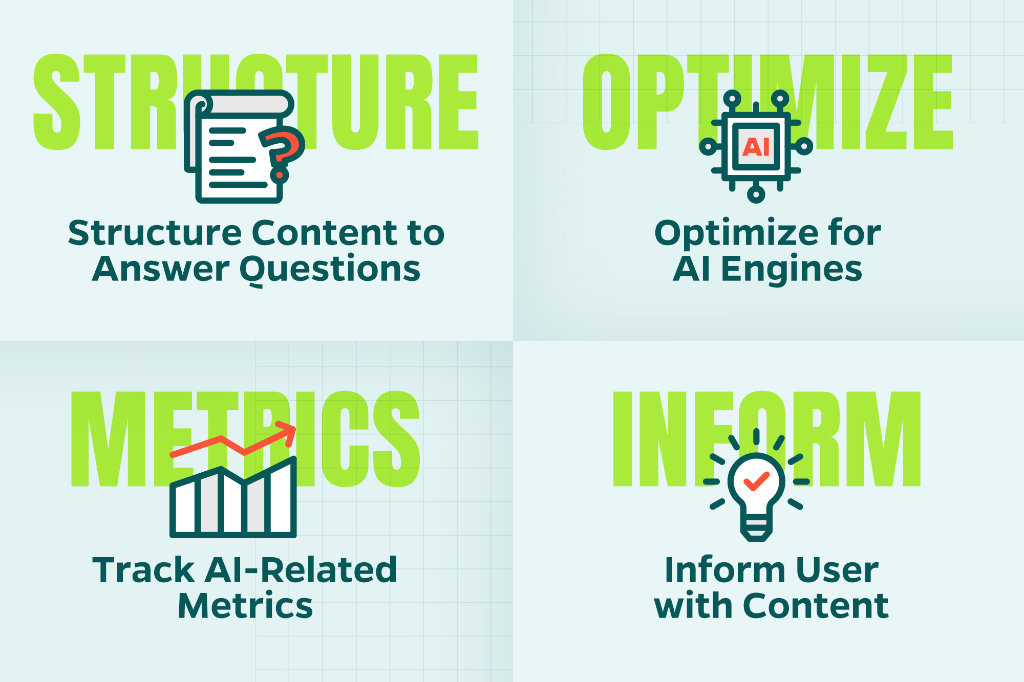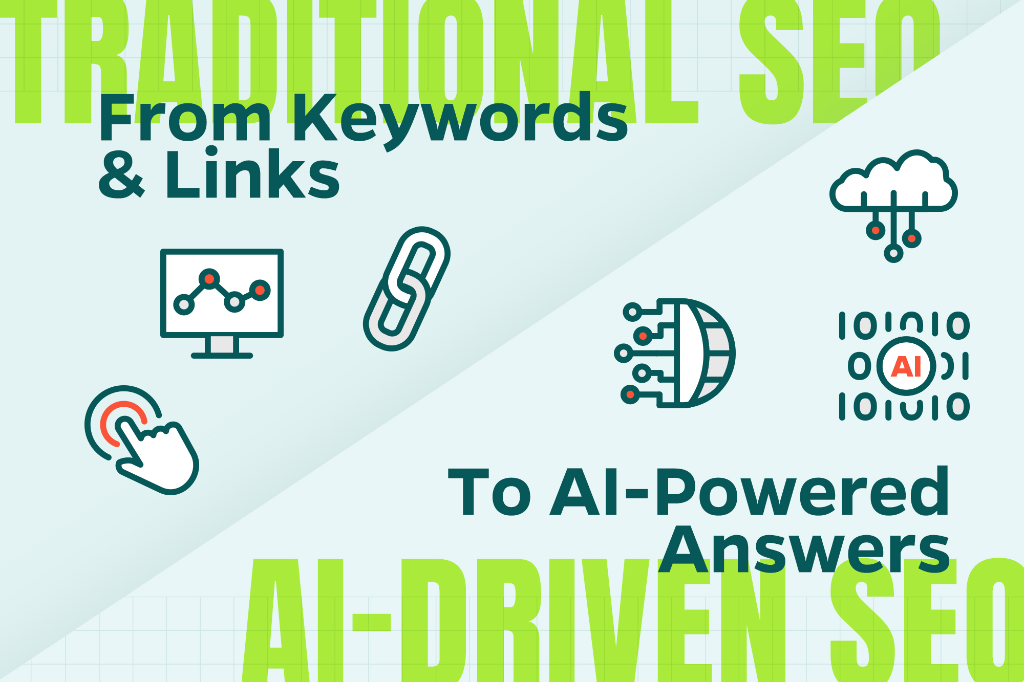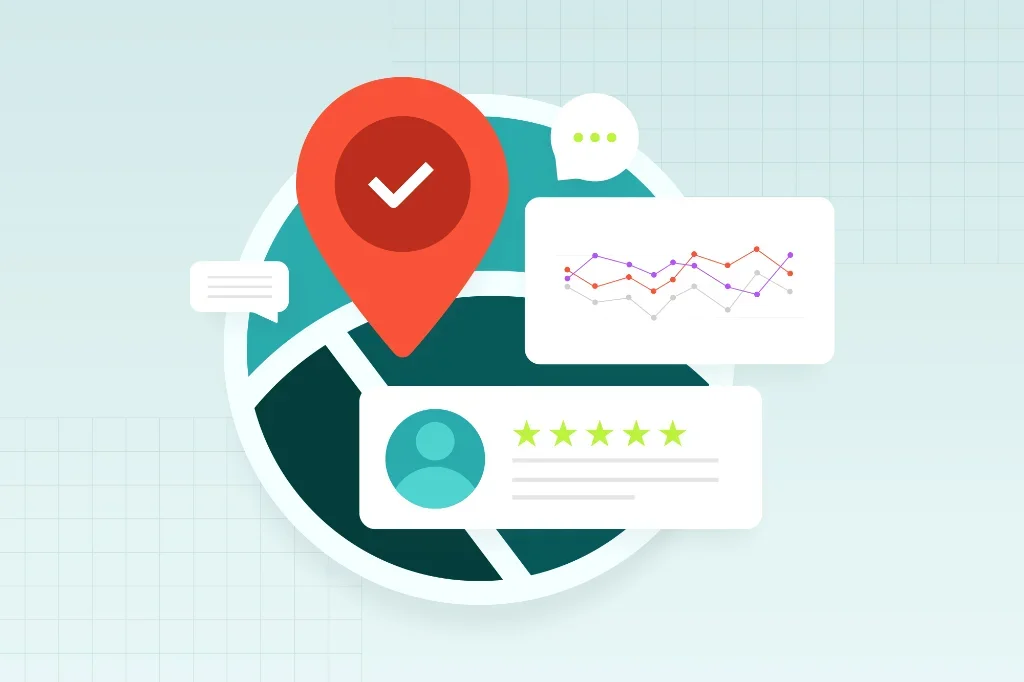Search is no longer about links and keywords — it’s about answers and action. As AI reshapes how users discover and interact with content, brands must evolve their SEO strategies to stay visible and relevant. Let’s explore how AI is transforming the search landscape and what that means for your SEO program.
Why Were Links and Keywords Once So Important?
For years, keywords and backlinks were the foundation of SEO. Google didn’t truly understand search intent — it simply matched keyword phrases with sites that had the most backlinks. If your site had enough links and mentioned the right keywords, you could rank well.
Keywords told search engines what your content was about. Links acted like votes of confidence. The more links you had, the more authority you were assumed to have.
Why Are Links No Longer the Core of SEO?
As Google evolved, it became better at understanding natural language, context, and intent. It no longer needed exact match keywords or thousands of backlinks to understand content quality. Today, Google can determine on its own if a page genuinely answers a user’s question.
Links still matter — but they’re supplemental. Instead of link quantity, today’s SEO is driven by relevance, clarity, and trust. The best answer — not the most linked answer — is what ranks.
AI Is Changing How Answers Are Delivered and Sourced
Traditional search engines like Google retrieve and quote answers from indexed web pages. AI engines like ChatGPT don’t quote directly and/or singularly — they generate new, synthesized answers based on the full information they’ve absorbed from many sources.
Is AI New to Search?
Not at all. Google has used AI for years to fight link spam and improve results. What’s new is the rise of AI engines as standalone search tools — platforms like ChatGPT and Perplexity.
Traditional Search Engines vs. AI Engines
Google is the clear dominant player in traditional search, with over 90% market share. Its role is to retrieve and display the most accurate answer from its index. Most users still turn to Google for day-to-day informational queries.
AI Engines Are Complex Task Engines
ChatGPT and similar tools shine in complex task execution — writing code, brainstorming, summarizing ideas. These tools help users do things, not just find things. When they are used for traditional search, AI engines synthesize answers from their own large language models (LLMs) and supplement from traditional search indexes (likely Bing, if not owned by Google).
While ChatGPT has only 0.25% of the traditional search market, its potential is massive. Let’s put that into perspective though. ChatGPT can grow 400%, and it will own just 1% of traditional market share. Regardless, its presence is more than enough to force Google to evolve.
How ChatGPT Is Forcing Google to Change
Google shows AI Overviews at the top of most informational queries, and it also provides the option of full AI Mode within its first tab. The presence of those features is a response to ChatGPT, and Google has made it clear that AI Mode is the future of search.
We are only beginning to understand how to build content and optimize for AI Mode and ChatGPT. Before we can fully understand and account for AI engines, the following needs to happen:
- AI Mode fully integrates into the Google interface.
- Google monetizes for AI Mode.
- Google releases search behavior data for AI mode.
- ChatGPT follows suit and shares search behavior data.
AI Is Reshaping Search Results and User Behavior
Even though AI engines are just scratching the surface, we are already experiencing significant impact. Google AI Overviews drastically reduce clicks. Users get their answers directly on the results page, especially within the top and middle of the funnel. That changes how we measure SEO success.
Where and When Do AI Overviews Appear?
They mainly show up for informational queries, above traditional results. They don’t show as often for transactional searches — those are dominated by ads and product listings.
How Do They Impact SEO Metrics?
- Impressions go up.
- Clicks go down.
- Conversions remain stable or increase, assuming it’s with greater qualification when users do click.
SEO has become a visibility game. You must be cited on the results page — even if users don’t click — so your brand becomes top of mind when they are making decisions.
How AI Engines Source Answers Differently
Google AI Overviews
These are sourced from Google’s web index, same as traditional search. Structured, helpful content in Q&A format performs best here — especially from authoritative, trustworthy sources.
ChatGPT
ChatGPT uses its LLM and supplements with Bing’s web index. Results become a blend of trained data and real-time information.

How to Optimize for AI Visibility
To succeed across traditional and AI-powered search platforms, your content must do two things:
- Structure Content to Answer Questions
SEO is now about building question-answer content. Every query is treated as a question, and Google (and ChatGPT) are looking for concise, clear, and helpful answers.
FAQ sections, headings framed as questions, and skimmable paragraphs help ensure your content gets picked up in AI Overviews and answer boxes.
- Build Brand Expertise and Visibility
In the AI age, brand replaces backlinks. Google and AI engines both ask: Why you? Why is your brand the most credible source to answer this question?
To earn that trust:
- Publish content authored by your brand’s subject matter experts.
- Be visible across reputable third-party sites and platforms.
- Ensure consistent, accurate brand data across the web.
- Monitor and manage brand sentiment/accuracy across AI tools.
Final Thoughts: The Future of SEO and AI
AI isn’t replacing search. It’s reshaping it. Traditional SEO tactics are evolving — not disappearing. Your brand’s visibility, expertise, and helpfulness across both traditional and AI-powered results will define your success.
What’s the SEO Takeaway?
SEO is no longer just about sending clicks. It’s about owning visibility for the full user journey — being helpful and trustworthy across every question your audience asks, wherever they ask it.








